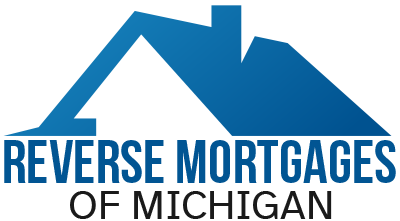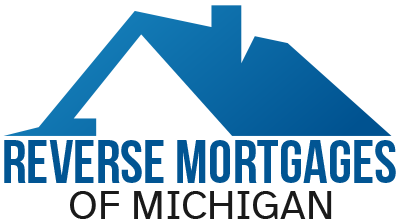Can You Refinance a Reverse Mortgage?

Can You Refinance a Reverse Mortgage?
Yes, you can refinance a reverse mortgage. While it might not be as common as refinancing a traditional mortgage, it’s a viable option for homeowners who meet certain criteria.
Understanding Reverse Mortgage Refinancing
A reverse mortgage allows homeowners aged 55 or older to convert a portion of their home’s equity into cash without making monthly mortgage payments. However, the loan balance grows over time. If your financial situation changes or your home’s value has increased, refinancing your reverse mortgage could be a beneficial option.
Here are some reasons to consider refinancing:
- Access more cash: If you need additional funds, refinancing can provide a larger loan amount.
- Lower interest rates: If interest rates have dropped, refinancing can save you money on interest over time.
- Change loan terms: You may want to switch from a line of credit to a lump sum or vice versa.
How Does Reverse Mortgage Refinancing Work?
To refinance a reverse mortgage, you’ll typically need to meet the following requirements:
- Age: You must be 55 or older.
- Homeownership: You must own your home and live in it as your primary residence.
- Home equity: Your home must have sufficient equity to qualify for a new loan.
- Financial stability: You’ll need to meet certain financial qualifications.
There are two primary ways to refinance a reverse mortgage:
- Refinance into a new reverse mortgage: This involves replacing your existing reverse mortgage with a new one. You’ll need to meet the eligibility requirements for a new loan and pass a “benefit test” to demonstrate that the new loan provides significant advantages.
- Refinance into a traditional mortgage: If your financial situation has improved, you may be able to qualify for a traditional mortgage. This will eliminate the reverse mortgage altogether.
Is Refinancing Right for You?
Before deciding to refinance your reverse mortgage, carefully consider the potential benefits and drawbacks. It’s essential to weigh the costs of refinancing against the potential savings or additional funds you’ll receive.
Benefits of Refinancing a Reverse Mortgage
While refinancing a reverse mortgage can be a complex process, it offers potential advantages:
- Access to more cash: If your home’s value has increased significantly, refinancing can provide you with additional funds.
- Lower interest rates: If interest rates have dropped, refinancing can lead to lower monthly payments or a larger line of credit.
- Flexible repayment options: Refinancing allows you to choose between different loan terms and disbursement options (lump sum, line of credit, monthly payments) to better suit your needs.
- Potential to eliminate the reverse mortgage: In some cases, improving your financial situation might enable you to refinance into a traditional mortgage, eliminating the reverse mortgage altogether.
Drawbacks of Refinancing a Reverse Mortgage
It’s essential to consider the potential downsides before deciding to refinance:
- Closing costs: Refinancing typically involves closing costs, similar to a traditional mortgage, which can reduce the net amount of cash you receive.
- Origination fees: Reverse mortgages come with origination fees, which will need to be paid again when refinancing.
- Benefit test: To qualify for a new reverse mortgage, you’ll need to pass a “benefit test” demonstrating that the new loan offers significant advantages over the old one.
- Potential for increased loan balance: Refinancing often results in a higher loan balance, which means you’ll owe more when the loan comes due or the property is sold.
- Time-consuming process: Refinancing can be time-consuming and involves numerous paperwork and evaluations.
When to Consider Refinancing
Refinancing a reverse mortgage might be a suitable option if:
- Your home’s value has increased substantially.
- Interest rates have dropped significantly.
- You need additional funds to cover unexpected expenses or improve your quality of life.
- You want to change the terms of your reverse mortgage (e.g., switch from a lump sum to a line of credit).
Scenarios for Refinancing a Reverse Mortgage
Let’s explore some common scenarios where refinancing a reverse mortgage might be considered:
Scenario 1: Rising Home Values
- Situation: Your home’s value has increased significantly since you obtained the reverse mortgage.
- Potential Benefits: You can tap into the increased equity for additional funds.
- Considerations: Assess if the potential benefits outweigh the costs of refinancing, including closing costs and origination fees.
Scenario 2: Lower Interest Rates
- Situation: Interest rates have dropped since you obtained your reverse mortgage.
- Potential Benefits: You could potentially lower your monthly payments or increase your line of credit.
- Considerations: Compare the potential savings with the costs of refinancing.
Scenario 3: Changing Financial Needs
- Situation: Your financial situation has changed, and you require more funds for healthcare, long-term care, or other expenses.
- Potential Benefits: Refinancing can provide access to additional funds to meet your needs.
- Considerations: Evaluate if refinancing is the best option compared to other financial strategies.
Scenario 4: Preparing for Inheritance
- Situation: You want to maximize the inheritance for your heirs.
- Potential Benefits: Refinancing might allow you to access more of your home’s equity while you’re alive, potentially leaving a larger inheritance.
- Considerations: Understand the impact of refinancing on the overall estate plan and the potential costs involved.
Scenario 5: Converting Loan Types
- Situation: You prefer a different loan type (e.g., switching from a lump sum to a line of credit or vice versa).
- Potential Benefits: Refinancing can allow you to change the terms of your loan to better suit your needs.
- Considerations: Evaluate the pros and cons of different loan types and determine if the benefits outweigh the costs of refinancing.
Remember, each situation is unique, and it’s essential to consult with a qualified financial advisor or reverse mortgage specialist to assess your options and make informed decisions.
Contact David Blatt your Reverse Mortgage Specialist at (248) 763-1438 or send him an email using our contact form.





